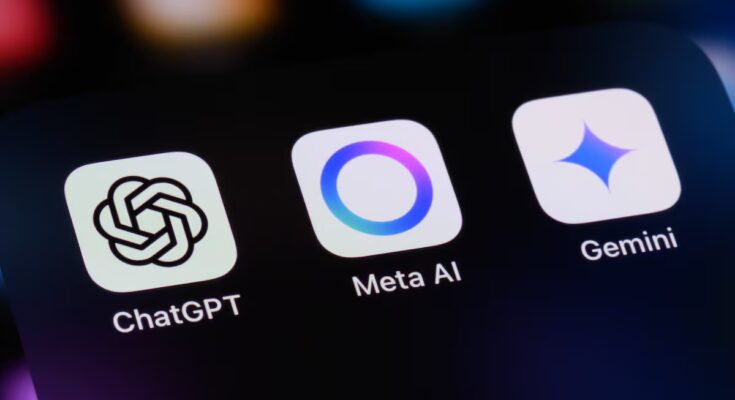Brussels is proposing to grant an extra year of grace to generative artificial intelligence (AI) systems such as ChatGPT. The European standard, a global pioneer in the regulation of this technology, will partially come into force. Provisions were to be activated in August next year that, for example, inform the consumer that he is seeing an image or product generated by artificial intelligence. From that date the application of sanctions for non-compliance with the rule was also expected. However, the European Commission proposes to grant another 12 months to companies that develop and use this technology, according to a draft of the proposal that the European Executive expects to approve this Wednesday and to which EL PAÍS has had access.
The pressures that reached Brussels were manifold. They have been exercised by the United States and also by the technology companies themselves. And they were joined, a month and a half ago, by Mario Draghi, respected former president of the ECB and author of the report analyzing how the EU must recover the competitiveness of its economy, which serves as a guide as a program of action in this second mandate of Ursula von der Leyen. In the background there is precisely the technological race that Europe has been losing to the United States and China for decades, of which artificial intelligence is the last stage and in which the Old Continent is also losing ground.
The Commission’s proposal is also part of its simplification programme. This Wednesday, Brussels presents a new chapter of this programme, the seventh, and there will be several proposals on digital regulation: it is expected that changes in the regulation of AI will also be joined by those in digital standards that concern the regulation of data, including the basic regulation which came into force in 2018, known by its English acronym, GDPR. Officials and political leaders of the Community Executive explain that it is not a question of deregulation, but rather of reducing administrative burdens and obligations for companies that bring little added value and hinder their competitiveness. They say this mainly because of the large number of rules adopted in the previous legislature (2019-2024), but the changes are going further.
And this is where Brussels now argues, just two years after the approval of the pioneering regulation (obtained under the Spanish presidency of the EU Council), that it is necessary to give “sufficient time to providers of generative AI systems subject to marking obligations (…) to adapt their practices within a reasonable period without disturbing the market”, reads the draft. For this reason, the European Executive considers it “convenient” to introduce a “one-year grace period” for those suppliers who have already marketed their systems before 2 August 2026, the date on which the entire regulation should have come into force.
The one-year delay refers specifically to the “transparency obligations” established by the European regulation. It establishes that “providers of AI systems, including general purpose AI systems, that generate synthetic audio, image, video or text content” must ensure through marking or labeling “that it is possible to detect that (such content) has been artificially generated or manipulated”.
In the name of the same need to allow “sufficient time” to comply with this transparency rule, it is proposed that “even if the rules will continue to be applicable and supervisory authorities will be able to enforce them”, as expected, starting from 2 August next year, these companies will also have a year of grace to adapt, since “the rules on administrative sanctions foreseen (…) relating to infringements” will apply, says Brussels, only “from 2 August 2027”.
The proposal, which will be presented this Wednesday as part of the “digital package” by the vice-president of the Commission for Technological Sovereignty, Henna Virkkunen, comes after weeks of rumors on the possibility that Brussels would give in to strong pressure to revoke its historic AI law, approved in December 2023 after months of intense negotiations. In recent days, EU sources have insisted that the European Executive has “no intention” of “lowering” the legislation on AI or the GDPR.
In July, more than fifty representatives of European companies, including Siemens and Mistral, called in an open letter to Commission President Ursula von der Leyen for the “need to postpone the implementation of the AI law” to allow “reasonable implementation” by companies and “further simplification of the rules”.
“This postponement, together with a commitment to prioritize regulatory quality over speed, would send a clear signal to innovators and investors around the world that Europe takes its simplification and competitiveness agenda seriously,” the managers noted.
The greatest pressure has come, however, from the other side of the Atlantic, where Donald Trump’s government has not hesitated to express its disappointment with any European attempt to regulate large technology companies – mostly of American origin – and has even gone so far as to accuse the EU of having “ideological biases” in its legislation on artificial intelligence, which it openly describes as “excessive”.



